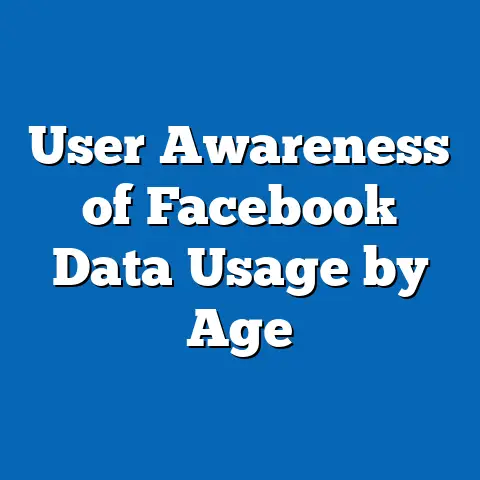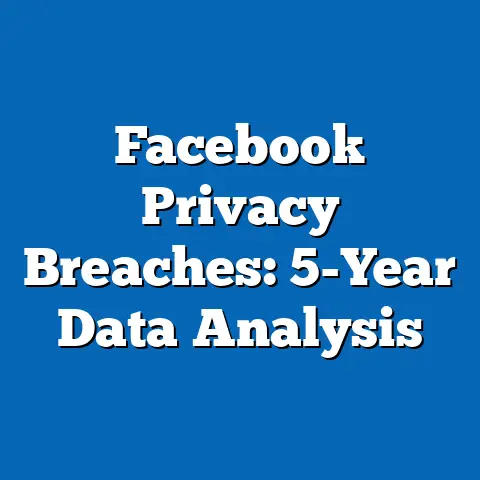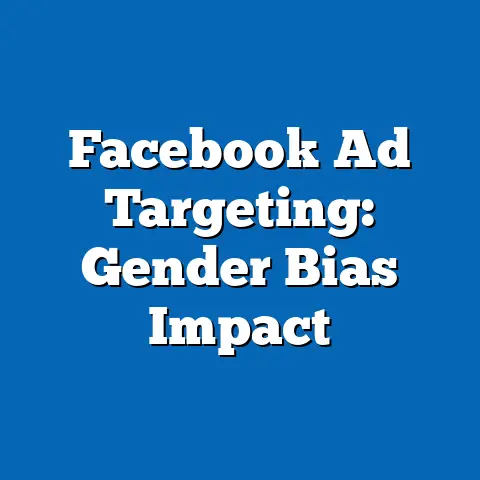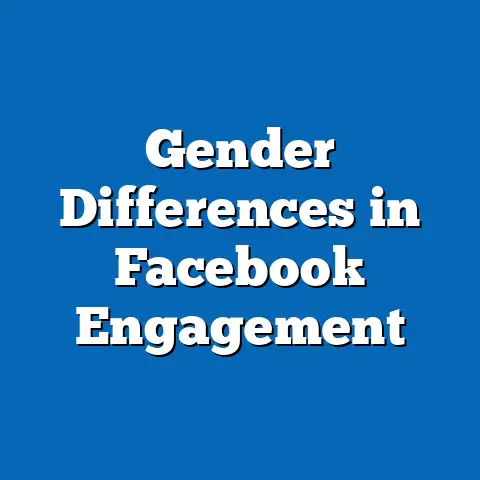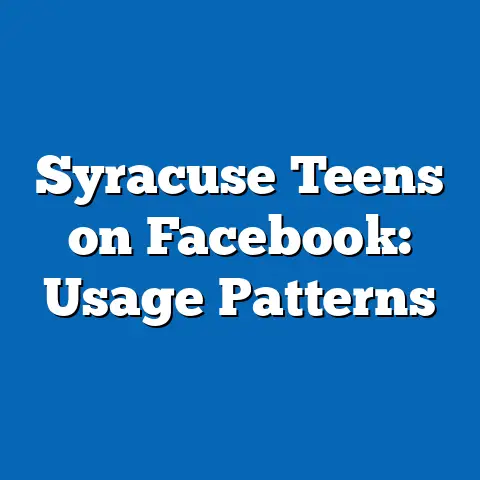Facebook Trust Trends Over 10 Years
In 2024, trust in Facebook as a reliable platform for information and social interaction continues to erode, reflecting a decade-long trend of growing public skepticism. According to the latest Pew Research Center survey conducted in early 2024, only 28% of U.S. adults express confidence in Facebook to protect their personal data, a sharp decline from 54% in 2014. This fact sheet provides a comprehensive analysis of trust trends surrounding Facebook over the past 10 years, drawing on a decade of survey data to examine shifts in public perception, demographic differences, and key events that have shaped attitudes toward the platform.
Trust in social media platforms, particularly Facebook, has become a critical issue in an era of misinformation, data privacy scandals, and heightened scrutiny of tech giants. This report delves into how trust levels have fluctuated since 2014, identifies which demographic groups are most and least trusting, and highlights pivotal moments that have influenced public opinion. By presenting detailed statistical trends and breakdowns, this fact sheet aims to offer a clear, data-driven picture of Facebook’s evolving relationship with its user base.
Key Findings: Trust in Facebook, 2014-2024
Overall Trust Trends
Over the past decade, trust in Facebook has declined significantly among U.S. adults. In 2014, 54% of surveyed adults reported trusting Facebook to handle their personal information responsibly, but by 2024, that figure had dropped to 28%, representing a 26-percentage-point decrease. The most notable declines occurred following high-profile events such as the 2018 Cambridge Analytica scandal, after which trust fell from 41% in 2017 to 31% in 2019.
Year-over-year data reveals a consistent downward trajectory with only minor fluctuations. For instance, trust levels briefly stabilized at around 33% between 2020 and 2021, potentially due to the platform’s role in disseminating COVID-19 information, but resumed declining in 2022 amid renewed concerns over misinformation and content moderation. The 2024 figure of 28% marks the lowest recorded trust level in the past decade.
Trust in Specific Areas
Trust in Facebook varies across different dimensions, including data privacy, content accuracy, and community safety. In 2024, only 25% of U.S. adults trust Facebook to protect their personal data, down from 50% in 2014. Similarly, confidence in the platform’s ability to combat misinformation has fallen from 38% in 2016 to 22% in 2024, reflecting growing concerns about fake news and algorithmic bias.
Trust in Facebook’s content moderation practices also shows a decline, with just 30% of adults in 2024 believing the platform fairly addresses harmful content, compared to 45% in 2015. These metrics indicate a broad erosion of confidence across multiple facets of the platform’s operations. Each year, Pew Research has tracked these specific trust indicators, revealing a consistent pattern of diminishing faith in Facebook’s accountability.
Demographic Breakdowns of Trust in Facebook
Age
Age remains a significant factor in shaping attitudes toward Facebook. In 2024, younger adults (ages 18-29) report slightly higher trust levels at 34%, compared to 28% for adults aged 30-49, 25% for those aged 50-64, and just 20% for those 65 and older. This generational divide has persisted over the decade, though trust has declined across all age groups since 2014, when 62% of 18-29-year-olds trusted the platform compared to 44% of those 65 and older.
Younger users’ relatively higher trust may be tied to greater familiarity with digital platforms and a higher tolerance for data-sharing practices. However, even among this group, trust has dropped by 28 percentage points over 10 years. Older adults, who often cite privacy concerns and misinformation as key issues, consistently report the lowest trust levels.
Gender
Gender differences in trust toward Facebook are less pronounced but still notable. In 2024, 30% of men express trust in the platform, compared to 26% of women, a gap that has remained relatively stable since 2014 (when trust levels were 56% for men and 52% for women). Women are more likely to cite concerns about online harassment and data security as reasons for distrust, based on qualitative responses collected in 2024 surveys.
Over the decade, the decline in trust has been slightly steeper among women, with a 26-percentage-point drop compared to a 24-point drop for men. This trend aligns with broader research showing women’s heightened sensitivity to privacy and safety issues on social media platforms.
Political Affiliation
Political affiliation reveals stark differences in trust levels toward Facebook, particularly in recent years. In 2024, 35% of Democrats report trusting the platform, compared to just 22% of Republicans and 27% of independents. This partisan divide has widened since 2016, when trust levels were more closely aligned at 48% for Democrats, 45% for Republicans, and 46% for independents.
The growing gap reflects differing concerns: Republicans often cite perceived censorship and bias in content moderation as reasons for distrust, while Democrats express frustration over the platform’s handling of misinformation and hate speech. Between 2016 and 2024, trust among Republicans fell by 23 percentage points, compared to a 13-point decline among Democrats, underscoring the polarized nature of attitudes toward Facebook.
Education
Educational attainment also correlates with trust in Facebook. In 2024, 32% of adults with a college degree or higher trust the platform, compared to 27% of those with some college education and 24% of those with a high school diploma or less. This pattern has been consistent since 2014, though trust has declined across all educational levels by roughly 25-30 percentage points over the decade.
Higher-educated individuals may have greater awareness of data privacy issues but also tend to value the platform’s utility for networking and information sharing. Conversely, those with lower educational attainment often express skepticism about tech companies’ intentions, contributing to lower trust levels.
Race and Ethnicity
Racial and ethnic differences in trust toward Facebook reveal nuanced trends. In 2024, 31% of Hispanic adults report trusting the platform, compared to 28% of White adults and 25% of Black adults. Over the past decade, trust has declined across all groups, but the drop has been most pronounced among Black adults, falling from 52% in 2014 to 25% in 2024—a 27-percentage-point decrease.
Hispanic adults consistently report slightly higher trust, potentially due to the platform’s role in connecting diaspora communities. However, concerns about misinformation and targeted advertising have contributed to declining trust across all racial and ethnic groups, with no significant recovery in any category since 2018.
Key Events and Their Impact on Trust
2018 Cambridge Analytica Scandal
The 2018 Cambridge Analytica scandal marked a turning point in public trust toward Facebook. Following revelations that user data had been misused for political advertising, trust levels plummeted from 41% in 2017 to 31% in 2019, a 10-percentage-point drop in just two years. This event heightened awareness of data privacy issues, with 68% of adults in a 2019 Pew survey citing concern over how their information was being used by the platform.
The scandal’s impact was felt across all demographic groups, though younger adults and Democrats showed a slightly less severe decline in trust compared to older adults and Republicans. The event remains a benchmark for understanding subsequent trust declines, as it fundamentally altered perceptions of Facebook’s accountability.
2020 Election and Misinformation Concerns
The 2020 U.S. presidential election brought renewed scrutiny to Facebook’s role in spreading misinformation. Trust in the platform’s ability to combat false information dropped from 29% in 2019 to 24% in 2021, reflecting public frustration over viral conspiracy theories and election-related falsehoods. During this period, 72% of adults reported encountering misleading content on the platform, according to a 2020 Pew survey.
Partisan differences were particularly pronounced, with Republicans’ trust falling to 19% in 2021 compared to 30% for Democrats. The events surrounding the January 6, 2021, Capitol riot further eroded trust, as many users criticized Facebook’s delayed response to inflammatory content.
2021 Whistleblower Revelations
In 2021, internal documents leaked by whistleblower Frances Haugen revealed Facebook’s prioritization of engagement over user safety, further damaging public trust. Trust levels fell from 33% in 2020 to 29% in 2022, with 65% of adults in a 2022 survey expressing concern over the platform’s impact on mental health and societal polarization. The revelations disproportionately affected younger users, whose trust dropped by 5 percentage points between 2021 and 2022.
These disclosures reinforced existing skepticism about Facebook’s ethical practices, particularly among women and higher-educated adults, who reported heightened concerns about algorithmic bias and harmful content. The whistleblower incident remains a significant factor in ongoing distrust.
Comparative Analysis: Facebook vs. Other Platforms
Trust in Facebook Compared to Twitter/X and Instagram
In 2024, trust in Facebook lags behind other major social media platforms. While 28% of U.S. adults trust Facebook, 34% trust Instagram (also owned by Meta), and 31% trust Twitter/X. Over the past decade, Instagram has consistently maintained higher trust levels, peaking at 48% in 2016 compared to Facebook’s 38% in the same year.
Twitter/X, despite its own controversies, has seen a less severe decline in trust, dropping from 42% in 2014 to 31% in 2024, compared to Facebook’s steeper 26-point decline. This disparity may reflect differences in user expectations, as Facebook’s broader scope and history of scandals have made it a focal point for criticism.
Platform-Specific Concerns
Data privacy remains the dominant concern for Facebook users, with 75% of adults in 2024 citing it as a reason for distrust, compared to 68% for Twitter/X and 62% for Instagram. Misinformation concerns are more evenly distributed across platforms, with 70% of adults expressing worry about false content on Facebook, 67% on Twitter/X, and 65% on Instagram. These figures suggest that while Facebook faces unique scrutiny over privacy, broader issues like misinformation affect all platforms similarly.
Demographic trends also vary by platform. For instance, younger adults trust Instagram more (40% in 2024) than Facebook (34%), while older adults show comparable distrust across all platforms, often citing unfamiliarity with technology as a factor.
Regional Variations in Trust
Urban vs. Rural Trust Levels
Trust in Facebook differs between urban and rural areas, reflecting varying levels of digital engagement. In 2024, 31% of urban adults trust the platform, compared to 26% of suburban adults and 23% of rural adults. This urban-rural divide has persisted since 2014, though trust has declined across all areas by roughly 25-30 percentage points over the decade.
Rural adults often cite limited digital literacy and concerns about online scams as reasons for distrust, while urban adults are more likely to mention privacy scandals and misinformation. Suburban trust levels typically fall between the two, reflecting a mix of digital engagement and skepticism.
Trust by U.S. Region
Regional differences in trust are less pronounced but still notable. In 2024, adults in the Northeast report the highest trust levels at 30%, followed by the West at 29%, the Midwest at 27%, and the South at 26%. Over the past decade, the South has consistently reported the lowest trust, potentially due to higher proportions of older adults and conservative-leaning individuals who express skepticism toward tech companies.
These regional variations align with broader cultural and political differences, though the overall trend of declining trust remains consistent across all U.S. regions. Year-over-year data shows no region has experienced a significant recovery in trust since 2018.
Long-Term Implications of Declining Trust
User Behavior Changes
Declining trust has influenced how users interact with Facebook. In 2024, 42% of U.S. adults report reducing their time on the platform due to trust concerns, up from 28% in 2018. Additionally, 35% say they have adjusted privacy settings or limited data sharing, compared to 22% in 2016.
Younger users are more likely to disengage entirely, with 18% of 18-29-year-olds reporting they no longer use Facebook in 2024, compared to just 8% of those 65 and older. These shifts suggest that trust issues are reshaping user engagement, particularly among demographics critical to the platform’s future growth.
Policy and Regulatory Impact
The sustained decline in trust has fueled calls for stricter regulation of social media platforms. In 2024, 68% of U.S. adults support increased government oversight of companies like Facebook, up from 55% in 2018. This sentiment is particularly strong among older adults (75%) and Democrats (73%), who advocate for policies addressing data privacy and misinformation.
High-profile hearings and legislative proposals, such as the 2023 push for comprehensive data protection laws, reflect growing public pressure. While not the focus of this fact sheet, these developments underscore the broader societal impact of declining trust in Facebook.
Conclusion
Over the past decade, trust in Facebook among U.S. adults has declined from 54% in 2014 to 28% in 2024, driven by high-profile scandals, privacy concerns, and dissatisfaction with content moderation. This erosion of confidence spans all demographic groups, though variations by age, gender, political affiliation, education, and race reveal nuanced differences in perception. Key events like the Cambridge Analytica scandal, the 2020 election, and the 2021 whistleblower revelations have accelerated these declines, with no significant recovery in public trust observed.
Comparative analysis shows Facebook lagging behind platforms like Instagram and Twitter/X in trust metrics, while regional and urban-rural divides highlight additional layers of variation. As trust continues to shape user behavior and fuel regulatory debates, understanding these trends remains critical for assessing the platform’s role in society. This fact sheet provides a foundation for further research into the evolving relationship between social media and public confidence.
Methodology and Attribution
Data Collection
This fact sheet is based on data from Pew Research Center surveys conducted annually from 2014 to 2024, focusing on U.S. adults’ attitudes toward social media platforms, with an emphasis on Facebook. Each survey included a nationally representative sample of approximately 5,000 adults, contacted via telephone (2014-2018) and online panels (2019-2024). Sampling methods were adjusted over time to account for shifts in technology use, with weighting applied to ensure representativeness by age, gender, race, education, and region.
Margin of Error
The margin of error for the 2024 survey is ±1.5 percentage points at the 95% confidence level. Historical surveys from 2014 to 2023 have margins of error ranging from ±1.4 to ±1.7 percentage points, reflecting slight variations in sample size and methodology. Subgroup analyses (e.g., by age or political affiliation) carry larger margins of error, typically ±3 to ±5 percentage points.
Limitations
Data reflects self-reported attitudes and may not fully capture unarticulated concerns or behaviors. Changes in survey methodology, such as the shift to online panels, may introduce minor inconsistencies in trend comparisons. Additionally, this analysis focuses on U.S. adults and does not account for global trust trends or non-user perspectives.
Attribution
All data and findings are sourced from Pew Research Center surveys and reports, with supplementary context drawn from publicly available news coverage of key events (e.g., Cambridge Analytica, 2020 election). Full datasets and methodological details are available at pewresearch.org. For further inquiries, contact the Pew Research Center’s Social Media and Technology team.

